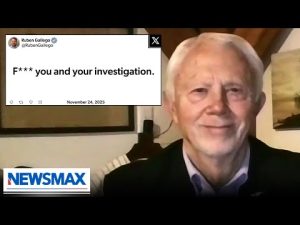A new release of court records and a Senate analysis from Senator Ron Wyden’s office lays out a shocking timeline: JPMorgan Chase reportedly filed only a handful of suspicious-activity reports totaling about $4.3 million while Jeffrey Epstein was alive, then—after his 2019 arrest and death—filed thousands of retroactive SARs covering roughly $1.3 billion in wire transfers. Americans should be stunned that such a massive gap exists in the paper trail for one of the nation’s most notorious criminal enterprises, and the memo raises serious questions about who knew what and when at the very top of Wall Street.
According to the unsealed records and Wyden’s analysis, internal bank emails suggest some executives wanted to “continue working with Epstein” even after he was cut loose as a client, implying profits and connections were valued above basic decency and the rule of law. This isn’t merely incompetence; it smells like cultural capture where the bank’s private-wealth machine tolerated red flags because of wealthy referrals and prestige. If true, that kind of moral bankruptcy at an institution with outsized influence must be exposed and punished.
Don’t forget the bank’s recent legal history: JPMorgan agreed to substantial settlements tied to Epstein-related litigation, including a reported $75 million resolution with the U.S. Virgin Islands and a separate settlement with victims that reached into the hundreds of millions. Those payouts were large enough to buy headlines, but they are not a substitute for criminal accountability or for a transparent accounting of why thousands of suspicious transfers went effectively uninvestigated for years. Victims and taxpayers deserve answers, not quiet cash-ins that let powerful institutions avoid full scrutiny.
This scandal should be an equal-opportunity outrage. Conservatives are right to demand rigorous law-and-order enforcement against human traffickers, and the same conservative principles demand that financial institutions follow the law and report wrongdoing—no exceptions for the wealthy or well-connected. If bank leaders overruled compliance officers, delayed filings, or otherwise obstructed investigations, that’s not only a corporate failing but a threat to national security and the integrity of our institutions.
Members of Congress and the Department of Justice must stop playing procedural games and get those SARs and related documents into the light. The Treasury has been pressed to release suspicious-activity reports in other Epstein probes, and transparency is the only way to restore public faith that justice applies to everyone, from the poorest victims to the richest perpetrators and enablers. No one should be above the law—not giant banks, not elites, not political insiders.
This is a moment for patriots who believe in accountability: demand hearings, demand prosecutions where appropriate, and demand structural reforms so that suspicious money linked to trafficking cannot slip through a bank’s fingers because it’s convenient or lucrative to look the other way. The left and right can disagree on many things, but protecting victims and upholding the rule of law should unite every American. If our institutions won’t police themselves, the people’s representatives must.







